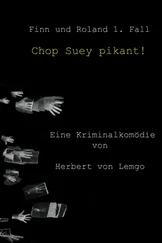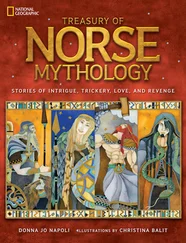Dorthe Nors - Karate Chop - Stories
Здесь есть возможность читать онлайн «Dorthe Nors - Karate Chop - Stories» весь текст электронной книги совершенно бесплатно (целиком полную версию без сокращений). В некоторых случаях можно слушать аудио, скачать через торрент в формате fb2 и присутствует краткое содержание. Год выпуска: 2014, ISBN: 2014, Издательство: Graywolf Press, Жанр: Современная проза, на английском языке. Описание произведения, (предисловие) а так же отзывы посетителей доступны на портале библиотеки ЛибКат.
- Название:Karate Chop: Stories
- Автор:
- Издательство:Graywolf Press
- Жанр:
- Год:2014
- ISBN:9781555970857
- Рейтинг книги:5 / 5. Голосов: 1
-
Избранное:Добавить в избранное
- Отзывы:
-
Ваша оценка:
- 100
- 1
- 2
- 3
- 4
- 5
Karate Chop: Stories: краткое содержание, описание и аннотация
Предлагаем к чтению аннотацию, описание, краткое содержание или предисловие (зависит от того, что написал сам автор книги «Karate Chop: Stories»). Если вы не нашли необходимую информацию о книге — напишите в комментариях, мы постараемся отыскать её.
A Public Space
Karate Chop
Karate Chop: Stories — читать онлайн бесплатно полную книгу (весь текст) целиком
Ниже представлен текст книги, разбитый по страницам. Система сохранения места последней прочитанной страницы, позволяет с удобством читать онлайн бесплатно книгу «Karate Chop: Stories», без необходимости каждый раз заново искать на чём Вы остановились. Поставьте закладку, и сможете в любой момент перейти на страницу, на которой закончили чтение.
Интервал:
Закладка:
Dorthe Nors
Karate Chop: Stories
For my parents
~ ~ ~
I come from a home with cats and dogs, and those cats were so much on top you wouldn’t believe it. They beat up on the dogs morning, noon, and night. They got beaten up on so much, those dogs, that one year they’d saved up so much hatred they chased one of the neighbor’s cats into a tree with the idea of hanging around until it came down again, after which they ate it.
DO YOU KNOW JUSSI?
SHE CAN HEAR THE OTHERS DOWNSTAIRS. JANUS IS STILL THERE too. He has just said good-bye to her up in her room and now he’s saying good-bye to her mother in the doorway. Then everything is quiet again, apart from her older brother turning on the shower across the hall. The smell of meatballs has drifted all the way inside her room and she is lying on the bed with a pillow between her knees. She can still feel the wetness of his saliva just beneath her nose, and his fingers. He made an effort to be nice, that was it, and she turns on the TV. She watches what’s left of the local news, then finds a show where some person looks for someone they knew who has disappeared.
Tonight it’s about a son unable to find his father. The son is thirty, rather chubby, and nearly cries when he says he is not angry with his father. But he can’t understand why his father has not written to him. When the girl whose show it is asks if he’s sad about that, the son can only nod.
A blond journalist Louise remembers once interviewed the prime minister on the television news is seen going through archives and asking people in public offices for information about the son’s missing father. The father’s name is uncommon, Jussi Nielsen, and now the blond journalist is standing outside a redbrick apartment block in a suburb of Copenhagen. He is going to ring the doorbell of an address where someone at the local authority believes Jussi Nielsen may once have lived. I wonder if anyone’s going to be home , the journalist says as he rings the doorbell. An elderly woman with a short perm opens the door. She doesn’t look at the camera when she appears, and she doesn’t seem surprised enough when the journalist says he is from national television. We’re looking for a man called Jussi Nielsen , says the journalist. The woman opens the door a little bit more and says: Yes, Jussi used to live here. The journalist nods. Do you know Jussi? he asks. Yes , says the woman.
It turns out that the woman, whose face Louise finds plain, was once married to Jussi Nielsen, but they got divorced. The way the apartment is done up, Louise can see they most likely never had much in common. But the journalist doesn’t care about things like that. He wants to know if the woman knows where Jussi Nielsen is now. The woman smiles, and looks straight into the camera. She looks proud: Yes, I know where Jussi is , she says.
Louise knows this is not the time to turn off the TV, but she turns it off anyway. Her brother is tramping about in the hall, but otherwise the place is still quiet. Janus hasn’t texted her, but he thought it was a shame it hurt. She looks at the photograph of him by the mirror. He has brown hair and prefers not to smile when his picture is taken. There’s one of Mom and Dad on vacation, too. It seems like a long time ago, and she thinks about Jussi Nielsen and about Janus, who is tall. His fingers are slender and attractive, but he always uses his tongue when he kisses. She finds it odd that he doesn’t use his lips once in a while. Tongue is okay, but it reminds her of the time she and her brother went to work with their dad. They licked envelopes for five kroner an hour at either side of a big, oval desk. Being there was all right, apart from the envelopes. She remembers it because she didn’t care to look at her brother, who wanted to see whose stack of licked envelopes grew the quickest, so she looked down at her work instead. That way she found herself looking too long at the addresses printed on the envelopes.
The letters were all for men and the addresses made her think about people to whom she didn’t belong. She had been able to see them in her mind, going about in strange rooms. She had been able to see them cutting through sports halls, sitting in cars at traffic lights, and walking their bikes and mopeds along the curb. Not just strangers, more like empty sheets of paper waiting to be written on. Or like pausing in front of a butcher’s shop window with your mother and seeing the reflection of a man standing next to you. He looks at the pork sausage. He considers buying the pork sausage, the strange man at the window. Then he decides not to. He turns away, and just before he disappears around the corner he stops and gives you and your mother a strange look.
She had imagined it like that, and she had imagined how she followed the man through the streets all the way to his door, into his stairway and up to the second floor. She went with him inside his apartment and into the kitchen. Here the man made coffee and adjusted the photograph on the counter. Then he went into the living room and turned on the television and watched the news.
She had watched the man as he sat rubbing the armrests with his thumbs. She watched him during the television news, watched him as he ate his pork chops. Later, she was there when he went to the bathroom, and in the ambience of the bedroom when the man put down his magazine on the bedside table and reached out to turn off the light.
There he had lain under his white linen, smelling of duvet, and Louise had wanted to cry. She wanted to shake the man and ask if he had a car. Because if he had a car she wanted him to take her home. She didn’t want to be there anymore. She wanted to go home to her mother, but she couldn’t, because this man, who was nothing but a name on an envelope, had stuck to her, and when later she rang all the doorbells on the stairway to ask if they knew anything about the man who lived on the second floor, they all said they didn’t. His name could have been Olsen, Madsen, Hansen, or Nielsen. No one knew.
“Are you okay? Do you want me to fetch Dad?” her brother had asked that day at their father’s office when they had licked envelopes, and at that moment Louise remembers saying she didn’t care for the adhesive.
“My stomach feels odd,” she said, and then her brother fetched their dad.
But that was then, she thinks to herself, and slides her fingers under her panties to where the skin is thin. It still feels tender, but she thinks it will pass. Her mother is filling the dishwasher, and Dad turns up the volume on the late night news. She mutes the phone and closes her eyes. No word from Janus. That’s a strange name too.
MUTUAL DESTRUCTION
HE WHISTLES HIS DOG TO HIM, PUTS A COLLAR ON IT, AND PULLS IT a short way back from the edge of the wood so they’re not stuck out like a sore thumb. It’s late in the day and there’s a big fallow field between him and Morten, so he can remain standing here. Morten is going about the farmyard with the red bitch at his heels. It’s lean and rough haired, and he’s always only ever had dachshunds. Small, aggressive animals that chew the lead and the floor mats in the car, and Henrik doesn’t like small dogs. But when they go hunting foxes, Morten takes his dachshund, and when they go shooting by the fjord, Henrik takes his small munsterlander and the decoys. They’ve sat many times in the caravan on the Gardeners’ land down in the bog, drinking weak coffee from plastic cups, the air dense with the smell of wet dog, talking about how practically things divided up, Henrik having a big dog for the one thing and Morten having dachshunds for the other. But now Morten’s down there in the farmyard alone. A single light is shining from the kitchen window. He must have forgotten to switch it off, and the dog reaches only to his bootlegs. It looks like he’s trying to fix some part of the door in the gable wall. There’s a lot needs fixing now. There’s a lot needs to sink in. Henrik, for instance, always thought it was the wife’s fault, because she gave you the feeling that one of the things she liked best about Morten was that he wasn’t good enough. It can’t have been easy for Morten, being married to someone who was always looking for the horizons in everything. She talked big, and Morten must have felt awkward about the students at school calling her Skylark, and you can see it in the house down there as well. The windows are the sort with narrow wooden bars and they’re painted red like in Sweden. There’s some wickerwork by the main door, and when you come in it’s all long tables in the living room and hand-sewn cushions, and on the walls what they called expressive art.
Читать дальшеИнтервал:
Закладка:
Похожие книги на «Karate Chop: Stories»
Представляем Вашему вниманию похожие книги на «Karate Chop: Stories» списком для выбора. Мы отобрали схожую по названию и смыслу литературу в надежде предоставить читателям больше вариантов отыскать новые, интересные, ещё непрочитанные произведения.
Обсуждение, отзывы о книге «Karate Chop: Stories» и просто собственные мнения читателей. Оставьте ваши комментарии, напишите, что Вы думаете о произведении, его смысле или главных героях. Укажите что конкретно понравилось, а что нет, и почему Вы так считаете.












